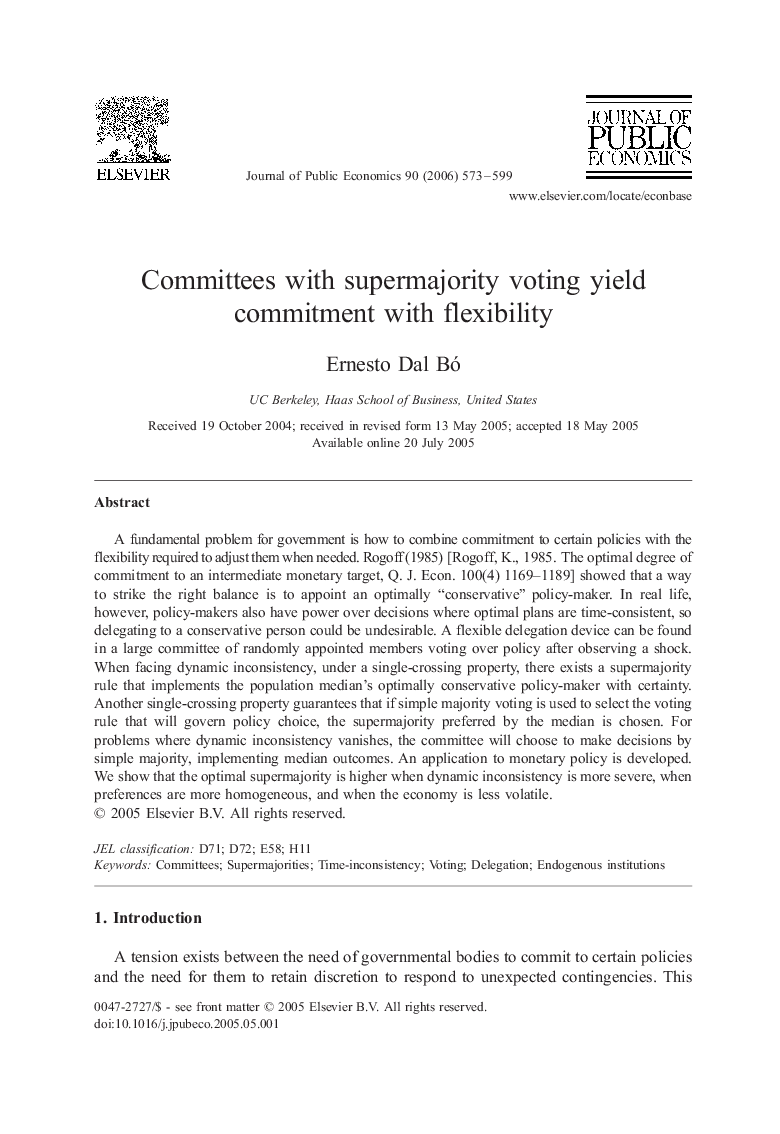| Article ID | Journal | Published Year | Pages | File Type |
|---|---|---|---|---|
| 969579 | Journal of Public Economics | 2006 | 27 Pages |
A fundamental problem for government is how to combine commitment to certain policies with the flexibility required to adjust them when needed. Rogoff (1985) [Rogoff, K., 1985. The optimal degree of commitment to an intermediate monetary target, Q. J. Econ. 100(4) 1169–1189] showed that a way to strike the right balance is to appoint an optimally “conservative” policy-maker. In real life, however, policy-makers also have power over decisions where optimal plans are time-consistent, so delegating to a conservative person could be undesirable. A flexible delegation device can be found in a large committee of randomly appointed members voting over policy after observing a shock. When facing dynamic inconsistency, under a single-crossing property, there exists a supermajority rule that implements the population median's optimally conservative policy-maker with certainty. Another single-crossing property guarantees that if simple majority voting is used to select the voting rule that will govern policy choice, the supermajority preferred by the median is chosen. For problems where dynamic inconsistency vanishes, the committee will choose to make decisions by simple majority, implementing median outcomes. An application to monetary policy is developed. We show that the optimal supermajority is higher when dynamic inconsistency is more severe, when preferences are more homogeneous, and when the economy is less volatile.
